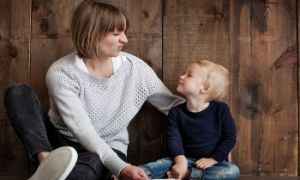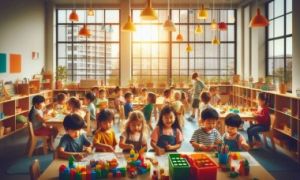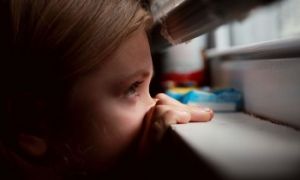Time was when preschool literacy was understood as young children’s ability to read and write in simple ways – like knowing and reading the alphabet and perhaps writing a few However according to recent early education pedagogy, literacy is understood in much broader terms that include children learning to express themselves and communicate through a range of forms and symbols. In keeping with this, the EYLF has defined literacy as the “capacity, confidence and disposition to use language in all its forms. Here are some significant takeaways from the definition.
Literacy Begins With Communication
Literacy is not just a set of skills that pre-schoolers need to develop in order to be ready to join full-fledged school. Instead the EYLF’s definition of literacy recognises that it develops from birth as humans learn to use gestures, sounds and language to express feelings, exchange thoughts and connect with others. Thus even before infants acquire language, they use sound, gesture and body language to communicate their needs and feelings. When adults talk to, sing songs or rhymes with babies, the latter are able to respond by showing what they’re interested in. In this way, even before being able to speak words, babies can ‘lead’ the conversation by pointing or holding out something for responsive adults to see.
Oral Language Sets The Scene For Literacy
In the first two years, before children are talking a great deal, they are listening and learning about what language is and what language does. This early learning is the beginning of a child’s awareness of sounds in the home language, combinations and sequences of such sounds and its patterns usually conveyed most enjoyably through rhymes, jingles and songs. As children learn more words, they take turns in a conversation and begin telling stories, thus acquiring oral language.
Various Modes Of Communication
Apart from talking, reading and writing, the EYLF understanding of literacy makes it clear that it incorporates a range of modes of communication including music, movement, dance, storytelling, visual arts, media and drama. All such modes allow pre-schoolers access to forms and materials to express and communicate complex ideas and feelings for which they may not have adequate vocabulary.
Texts Include More Than Books
Traditionally ‘texts’ has referred to books, magazines and advertising material and to film and TV. However the EYLF defines ‘texts’ as ‘... things that we read, view and listen to and that we create in order to share meaning’. The most significant implication of this understanding is the inclusion of digital texts which have made our literacy world ‘multi-modal’. In an increasingly technological world, the ability to critically analyse contemporary texts like electronic and print-based media is a key component of literacy. Using information and communication technologies helps children to explore their world, interact with others and make their own meanings.
Reading aloud is one of the best-kept secrets. It has a tremendous impact on the child’s mind and helps them gain a good start on their education and learning. It also supports children to become emergent readers through the use of repetitive listening and using familiar words while reading.
Importance Of Reading To Children
Literacy skills cover the ability to read and write words, sentences and language. Since such skills are not just the basis of effective communication but also determine future academic progress, it is important to support literacy skills from early childhood.
Developing and Enhancing Literacy Skills
References:
- Implementation Guidelines For Indicators Of Preschool Numeracy and Literacy in Government Preschools, Department Of Education South Australia
- Becoming Literate, Department Of Education South Australia


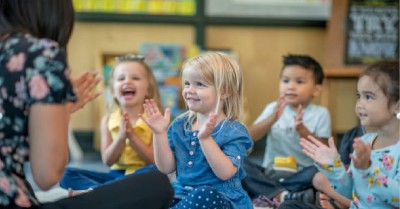
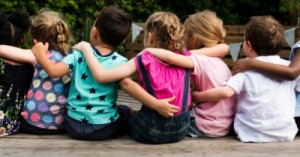

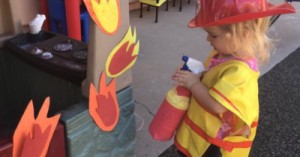
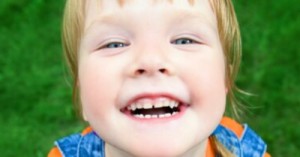
 Open ended questions cannot be responded to with one word answers such as yes or no. These types of questions enables a child to provide
Open ended questions cannot be responded to with one word answers such as yes or no. These types of questions enables a child to provide During your child’s preschool years, an important milestone begins to emerge. This is the development of pre-writing skills. Pre-writing skills are used to encourage, develop
During your child’s preschool years, an important milestone begins to emerge. This is the development of pre-writing skills. Pre-writing skills are used to encourage, develop Open ended materials enables children to play freely. They are objects that have no rules to follow, use or function. Raw materials that can be
Open ended materials enables children to play freely. They are objects that have no rules to follow, use or function. Raw materials that can be An Acknowledgment of the Country is a way of showing respect for the Traditional Owners and can be given by both non-Indigenous people and Aboriginal
An Acknowledgment of the Country is a way of showing respect for the Traditional Owners and can be given by both non-Indigenous people and Aboriginal Language plays an important role in a child’s development. It enables a child to communicate effectively with their family, learn at school, socialize with friends,
Language plays an important role in a child’s development. It enables a child to communicate effectively with their family, learn at school, socialize with friends, Like adults, children have to deal with their own stress in life. Moving house, starting a new school, preparing for a new sibling - these are
Like adults, children have to deal with their own stress in life. Moving house, starting a new school, preparing for a new sibling - these are Playdough is such a versatile material. It provides numerous benefits to children as they manipulate it, it is safe and soothing and provides children with
Playdough is such a versatile material. It provides numerous benefits to children as they manipulate it, it is safe and soothing and provides children with Teaching children about sustainability enables them to appreciate and respect the natural environment. Early childhood services can provide meaningful hand on learning experiences in order
Teaching children about sustainability enables them to appreciate and respect the natural environment. Early childhood services can provide meaningful hand on learning experiences in order Recycling is an important concept that teaches children to care for the environment. It encourages children to be responsible and show a growing appreciating for
Recycling is an important concept that teaches children to care for the environment. It encourages children to be responsible and show a growing appreciating for Incursions provide children with the opportunity to explore meaningful learning experiences in the comfort of their early childhood service. The following provides a directory of
Incursions provide children with the opportunity to explore meaningful learning experiences in the comfort of their early childhood service. The following provides a directory of